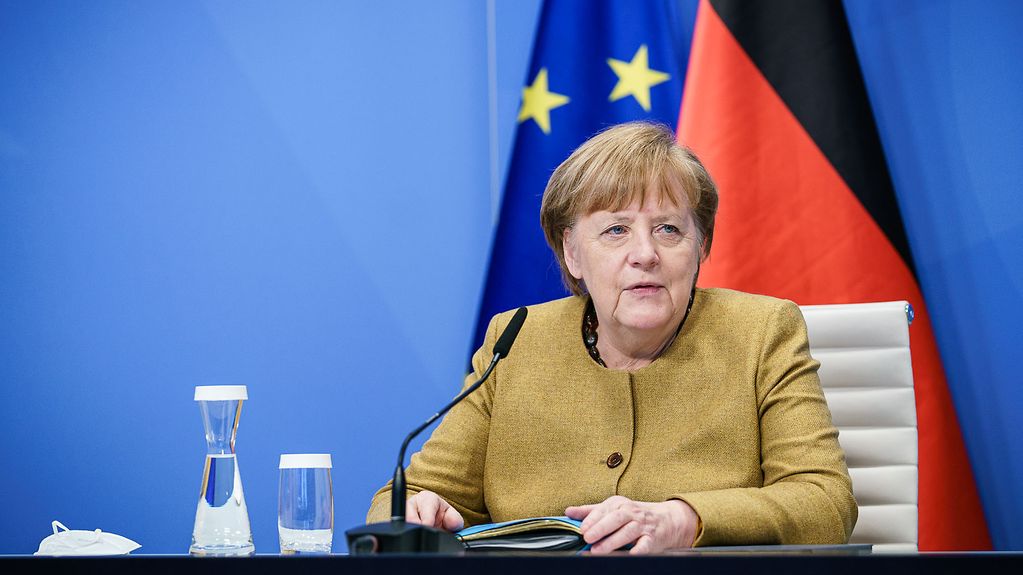Video conference of EU heads of state and government
Chancellor Angela Merkel has met again with the EU heads of state and government to discuss coordination of the response to the COVID-19 pandemic. They agreed that action must be taken to better identify new variants of the virus, accelerate vaccinations, and further restrict non-essential travel.
3 min reading time

During the consultations with EU leaders, Chancellor Angela Merkel called for joint action to address the pandemic.
Photo: Bundesregierung/Denzel
The heads of state and government of the EU member states expressed their concern over the new variants of the virus identified in the United Kingdom and South Africa. They intend to take a robust and coordinated approach to contain the spread of the virus. One important key is to identify the virus more specifically and increase sequencing capacity, Charles Michel, President of the European Council, reported after talks on Thursday evening.
Given the persistently high numbers of new cases and new variants of the virus, Charles Michel, the President of the European Council, invited the heads of state and government to a video conference. EU leaders regularly discuss the situation with respect to the pandemic and explore ways of containing the virus. Chancellor Angela Merkel proposed these regular meetings at the European Council meeting in mid-October.
Avoiding border closures, recognising test results
The President of the European Council stressed that European borders should remain open for goods and commuters as far as possible, so that the single market can continue to function. No indiscriminate travel bans should be imposed. However, measures restricting non-essential travel within the EU may be needed to contain the spread of the virus.
In the run-up to the video conference, Chancellor Angela Merkel spoke about the possible reintroduction of border controls. Across-the-board border closures must be the "absolute last resort" she said at a press conference in Berlin. "We will do a lot to prevent that." The precondition is, however, that countries adopt similar procedures to control the pandemic. "It is about ensuring that we are all pursuing the same goal of getting new case numbers down as low as possible."
The heads of state and government also discussed the introduction of cross-border "dark red zones" where infection rates are particularly high. Travelers from these regions could be instructed to take a test before they leave the area and to quarantine if they enter a different region.
The EU leaders also welcomed agreement on the rapid antigen test and mutual recognition of test results.
Accelerating vaccination
Charles Michel stressed that vaccination in the EU must be accelerated. Companies must honour their delivery commitments, he said. It is important that vaccines are distributed at the same time to member states on a pro rate/population basis. The vaccination process must be closely followed up. Every possible avenue will be explored in order to ensure that vaccines are supplied swiftly, and to avoid delays.
The EU leaders also agreed to introduce a proof of vaccination for medical purposes. At a later point they intend to decide under which circumstances these certificates could be used. The heads of state and government also re-affirmed their readiness to support third states with vaccinations.
On 27 December 2020, the EU member states together began to vaccinate their populations against COVID-19. Two vaccines have currently been approved for use in the EU, following a positive assessment by the European Medicines Agency (EMA): the vaccines manufactured by BioNTech-Pfizer and Moderna. In total the European Commission has concluded contracts with six vaccine developers. If all EU vaccines are successful, it will have at its disposal 2.4 billion doses of vaccines for 450 million Europeans. Following authorisation and manufacture, the vaccine doses are distributed to member states in line with their population. Our FAQs answer more questions on this subject.